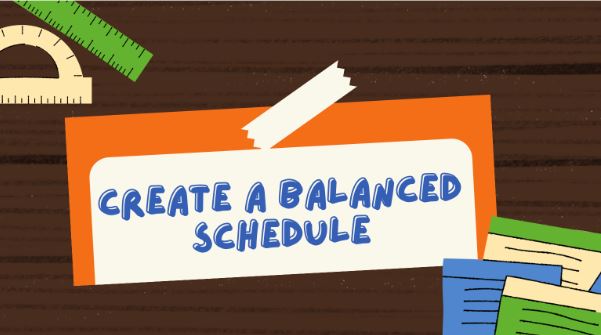 Balancing academics and social life is a quintessential challenge faced by university students globally.
Balancing academics and social life is a quintessential challenge faced by university students globally.
Achieving a harmonious balance requires careful planning, discipline, and the wisdom to know when to focus on your studies and when to engage in social activities.
In tackling tasks like a history research paper, students may search online for information on this subject or even contemplate options to buy history papers.
It’s essential to balance time effectively and uphold academic integrity.
This guide provides a comprehensive exploration of strategies for successfully navigating the different aspects of university life.
Prioritize Your Responsibilities
Having a clear understanding of your responsibilities is crucial when it comes to dealing with the complex terrain of university life.A survey conducted by ACHA found that approximately 80% of college students feel overwhelmed by their responsibilities at some point during their academic career.
This overwhelming feeling underscores the importance of prioritizing tasks to manage responsibilities effectively.
Another study on time management techniques among university students revealed that nearly 70% of students reported an improvement in their academic performance after adopting a structured approach to prioritizing their responsibilities.
This involved distinguishing between urgent and important tasks and allocating their time accordingly.
Understanding Priority:
- * Urgent and Important: Tasks that require immediate attention, such as upcoming exams or assignment deadlines.
- * Important but Not Urgent: Long-term academic goals, like research for a term paper or planning study abroad applications.
- * Urgent but Not Important: Social events that happen to be on the same day but might not significantly impact your life.
- * Neither Urgent Nor Important: Activities like binge-watching a series, which could be postponed or minimized.
Action Plan:
- * Assessment: Regularly assess your tasks to categorize them into the above segments.
- * Scheduling: Allocate your time according to these priorities, ensuring that the urgent and important tasks are at the top of your list.
- * Flexibility: Be prepared to reassess and adjust your priorities as deadlines and commitments evolve.
Create a Balanced Schedule
By organizing your schedule into distinct time blocks for various activities, you can achieve a balanced mix of productivity and relaxation.
Key Components of a Balanced Schedule:
- * Academic blocks: Time dedicated to attending lectures, studying, and completing assignments.
- * Social blocks: Time reserved for socializing, clubs, sports, and other extracurricular activities.
- * Personal time: Important intervals for self-care, exercise, hobbies, and rest.
Creating Your Schedule:
- * Identify Your Non-negotiables: These are your fixed commitments like classes and work shifts.
- * Add Study Time: Based on your course demands, allocate sufficient time for studying and project work.
- * Incorporate Social and Personal Time: To keep a good balance, make sure to schedule time for socializing and relaxing.
Dr. Susan Whitbourne, a professor emerita of Psychological and Brain Sciences, suggests that “a balanced schedule acts as a buffer against stress and burnout, allowing students to optimize their cognitive functions.”
She highlights the importance of effectively balancing work and leisure to minimize mental fatigue and improve overall well-being.
Learn to Say No
When to Say No:
- * When you’re already overwhelmed with existing commitments.
- * If the activity doesn’t align with your long-term goals or priorities.
- * When you’re sacrificing essential rest or study time.
Strategies for Saying No:
- * Be Assertive but Polite: Communicate your reasons clearly without feeling guilty.
- * Offer Alternatives: If you can’t participate now, suggest another time or activity.
- * Practice Self-Reflection: Regularly evaluate your commitments to avoid overcommitting.
For those who find it particularly challenging to say no, the prospect can evoke feelings of guilt or fear of missing out.
However, mastering this skill is crucial for maintaining your mental health and ensuring your priorities remain aligned with your goals.
Here are some extra suggestions to make this process more manageable:
Enhanced Strategies for Gracefully Declining Requests
- 1. Begin With Less Critical Requests:
Initiate your practice by turning down lesser important asks that you’re less emotionally attached to. This can gradually build your confidence in rejecting more substantial obligations.
- 2. Employ “I” Statements to Soften Refusals:
Make your refusals about your own needs or constraints by using “I” statements. This approach feels more considerate, e.g., “I need tonight to focus on my studies” versus a flat refusal.
- 3. Take Time Before Responding:
If immediate refusal is hard, say, “I’ll get back to you,” to buy yourself time to think it over and decide without pressure.
- 4. Consider the Consequences of Overcommitting:
Think ahead about the stress or potential burnout from not saying no. Imagining these scenarios can help strengthen your resolve to decline.
- 5. Practice Your Declinations:
Try rehearsing your refusals, either alone or with a supportive friend. This can help you find the right words and tone that feel respectful and sincere.
By adopting these refined strategies, you’ll be better equipped to manage your commitments effectively, ensuring that you’re only saying yes to what truly matters to you.
Saying no is not just about turning down what you don’t want to do; it’s a crucial step in managing your time, energy, and focus on the priorities that genuinely align with your personal and professional goals.
Get the Most Out of Your Study Time
Many university students want to increase productivity due to heavy workloads and tight deadlines.
Implementing effective study techniques can dramatically increase efficiency.
Effective Study Techniques:
- * Active learning: Engage with the material through discussion, teaching, or application.
- * Spaced repetition: Review material over increasing intervals of time.
- * Pomodoro Technique: Work for 25 minutes, then take a 5-minute break.
Benefits:
- * Enhanced Memory Retention: Techniques like spaced repetition help in better long-term retention of information.
- * Increased Productivity: Short, focused study sessions can boost your productivity.
- * Reduced Burnout: Regular breaks prevent burnout and keep you motivated.
Take Care of Your Health
Components of a Healthy Lifestyle:
- * Get enough sleep: Strive to get 7-9 hours of restful sleep every night.
- * Nutrition: It is important to maintain a well-balanced diet.
- * Physical Activity: Make sure to incorporate at least 30 minutes of exercise into your daily routine.
Impact on Academic and Social Life:
- * Improved Cognitive Function: Better sleep and nutrition improve focus and memory.
- * Increased Energy Levels: Regular exercise boosts energy, making it easier to engage in both study and social activities.
- * Enhanced Mood: A healthy lifestyle contributes to overall well-being, reducing stress and anxiety.
Embrace Flexibility
Life is unpredictable. It is crucial to have a well-thought-out plan, but so is the ability to roll with the punches when things don’t go according to plan.
Flexibility allows you to respond to new opportunities or challenges without significant stress.
| Resource Type | Purpose | Where to Find |
| Academic Advising | Course planning, study tips | University’s advising center |
| Counseling Services | Stress, anxiety management | University’s health center |
| Study Groups | Collaborative learning | Campus libraries, online forums |
| Fitness Programs | Physical health, stress relief | University’s gym or recreation center |
| Social Clubs | Networking, relaxation | University’s student life office, online community boards |
Remember, the journey through university is as much about discovering new knowledge as it is about discovering yourself.
By applying these strategies, you’re not only setting the stage for academic success but also crafting a life that resonates with joy, health, and fulfillment.
Allow this guide be your compass, guiding you through the ebbs and flows of university life, towards a horizon where your dreams and reality converge in a beautiful balance.
Embrace each day with purpose, passion, and a plan, knowing that the balance you seek is not just possible—it’s within reach.









